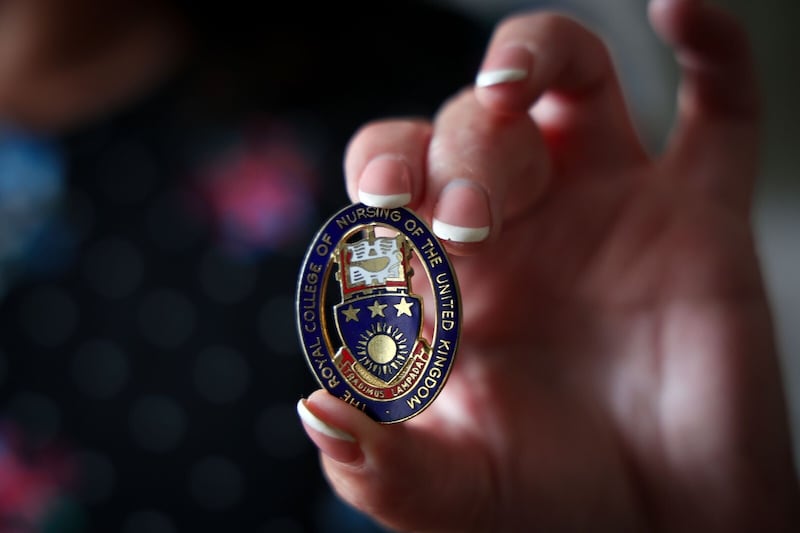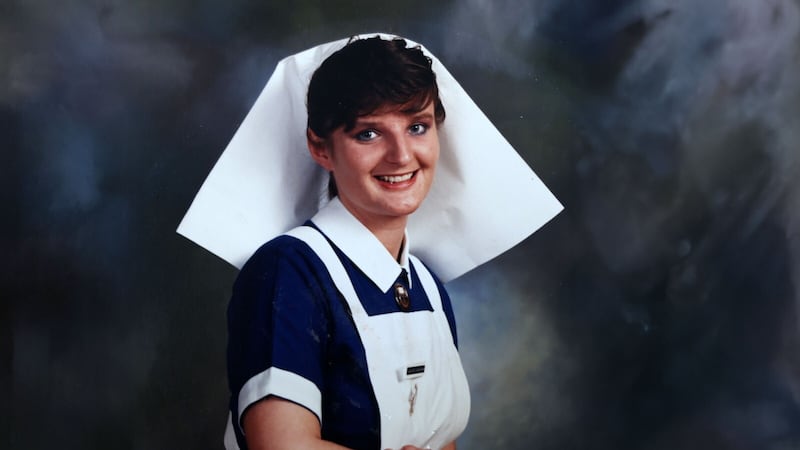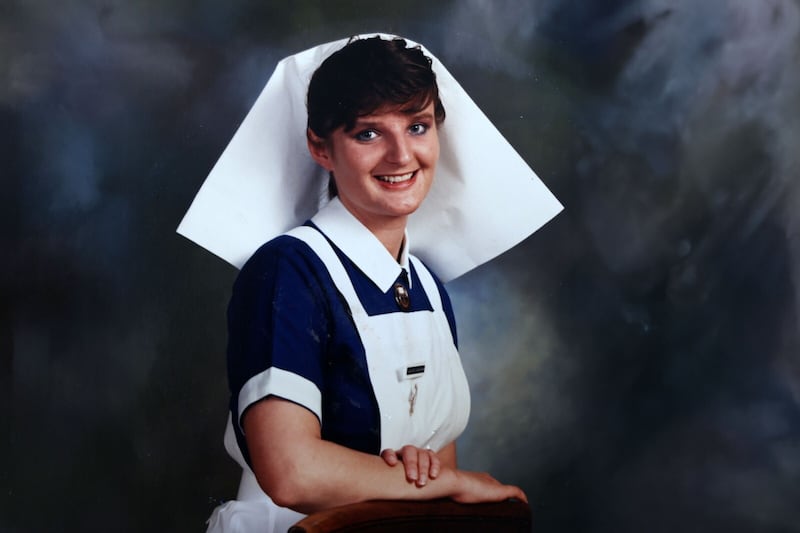In 1984, an 18-year-old Barbara Johnston from Ballymoney first stepped on to the wards at Belfast’s Royal Victoria Hospital.
At the time, nurses lived and trained on site with curfews and a strict ban on any men going past the first floor of the accommodation.
The turbulence of the Troubles also meant that young health workers often faced horrific sights like civilians and soldiers injured by shootings and bombings.
Retiring after 40 years, Barbara (58) has just been named as the Patient’s Choice at the RCN NI nurse of the year awards.
Speaking to The Irish News to mark 75 years of the NHS, she looked back on four decades on the wards of the Royal and her fears for the future of the NHS.
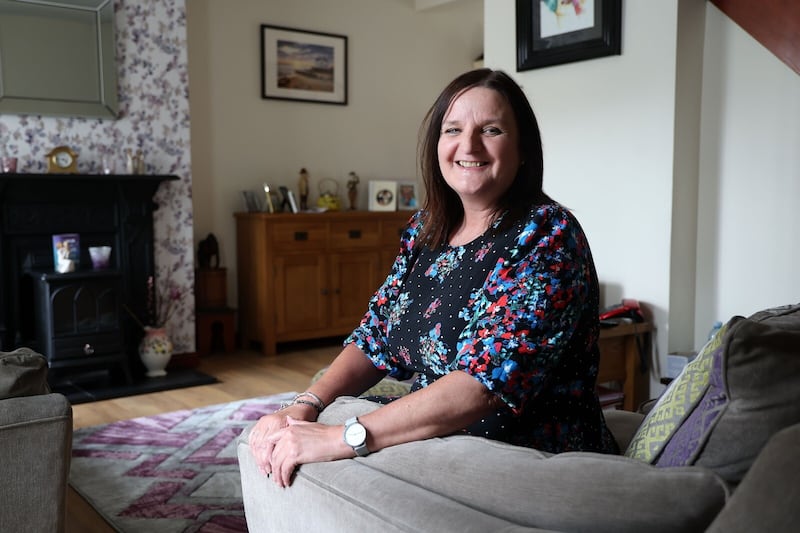
Her recent nomination came from the mother of a 43-year-old man who died from a long illness after a year as an inpatient.

Read More:
- How life in Northern Ireland was shaped by the creation of the National Health Service
- Consultant warns more people will die over health service pressures without urgent reform
- How the beginning of the National Health Service was reported in Northern Ireland
- Director of Royal College of Nursing calls on politicians to back NHS
Expressing her thanks, the mother said Barbara’s end of life care gave her son “the opportunity to say goodbye in the right way.”
“Barbara treats her patients as if they are her family,” she said.
“She had my most precious gift in her care and treated him like her own. My son always had a smile on his face when he talked about Barbara.
“The simple gestures of being present, making time and those all-important cups of tea were sometimes better than all the expensive treatments. This is a skill that can’t be taught. It comes from the heart.”
Barbara said: “I was very humbled by it, but it was a great end to my career to receive something as unexpected as that.
“Her son was a wonderful and intelligent man, and it was an absolute honour to nurse him. I also felt a bit like an imposter as I was only doing my job, but it was a lovely accolade.”
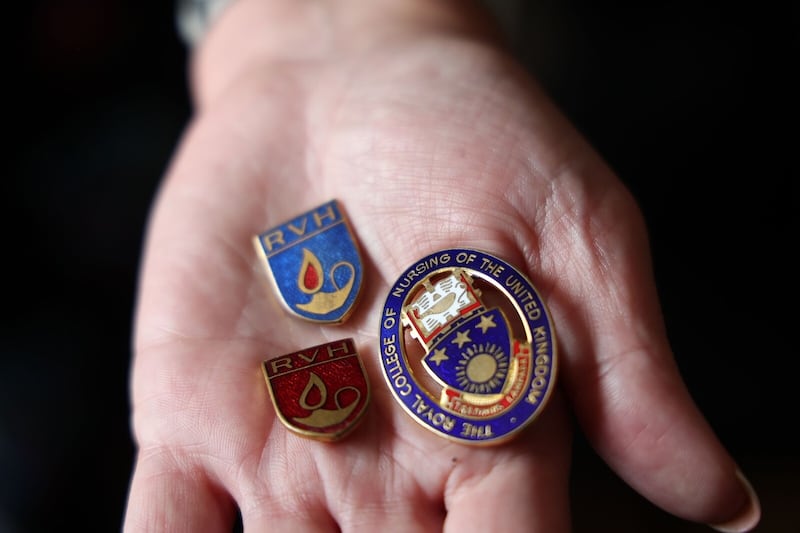
Having trained “the old-fashioned way” Barbara started at the Royal at a time when each hospital had its own nursing school.
“You were trained by the hospital, you were in the nursing home with a very strict sister where you weren’t allowed out past 11pm.
“No men were allowed above the first floor, not even your father or your brother for that matter.
“But there was great camaraderie. I’m actually having my 40-year reunion in January.
“We were all in the nursing home together and you all made friends and tried to get past the 11pm curfew, teenage girls being teenage girls. Obviously, the Troubles were still going on at that time.”
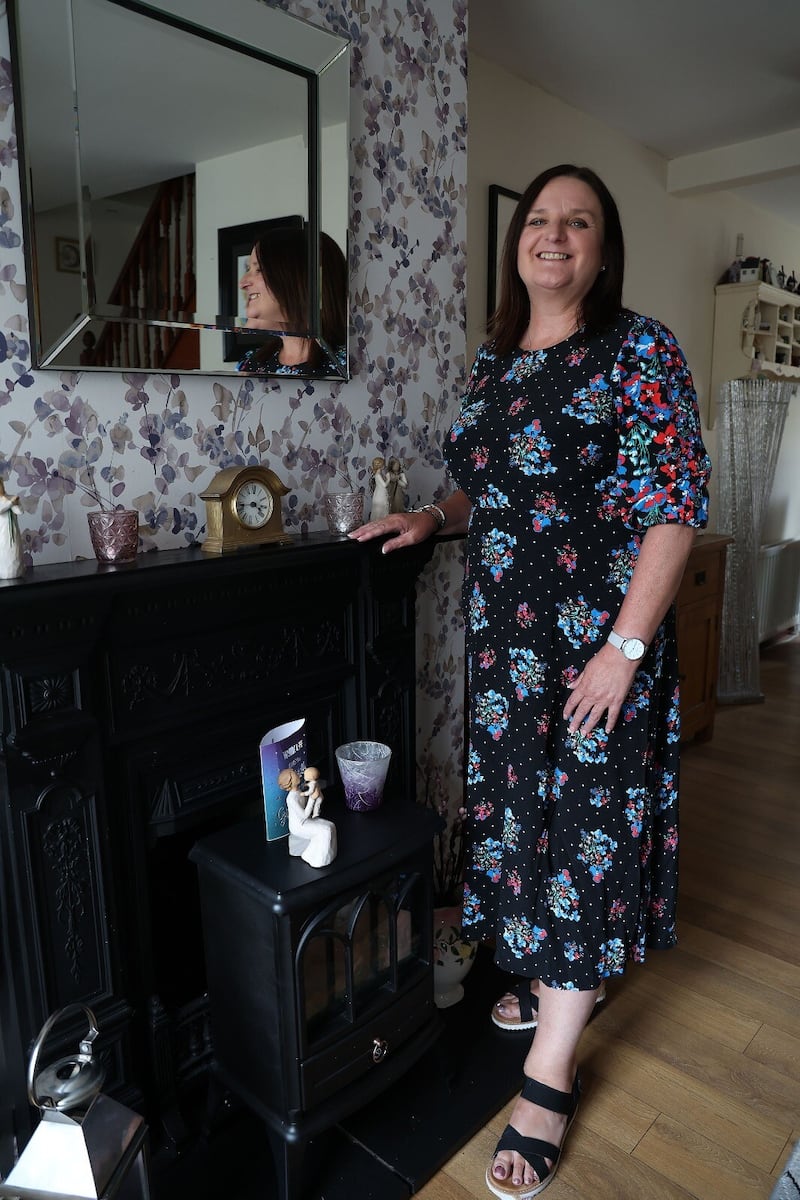
With three intakes of new nurses a year, it took a total of three years to train.
“Student nurses were very prominent in the hospital and made up a great part of the workforce. You learned on the job, and in my opinion, you don’t learn to be a nurse from a book.
“You learn from being out there and seeing what can be horrific things that you have to come to terms with.”
Passing her exams after three years, the turnaround to becoming a staff nurse took only hours.
“In those days we wore hats. So you changed your hat from a student hat to a staff nurses hat and by lunchtime you were a staff nurse and that was it.
“Today, you would have a six-month induction and a mentor but, in my day, there was none of that. You would have been in charge of two wards the week after qualifying.
“So it was quite intense, but because you had done the three years and the student workforce was so high it didn’t seem like a problem.”
Her duties during the Troubles included working on a ward for security services.
“You would have been getting people in that had been blown up or shot. Even policemen who needed ordinary surgeries, they would need to be guarded when they came in,” she said.
“There was also a lot of joyriders being shot at that time. The amount of bombs wasn’t the same as the 1970s, but there would be people who were shot or blown up.
“When you’re in working and in your uniform, you can process it very well because you’re doing your job and the best for that person who has been put in that life-threatening situation.
“But there was many a time I cried driving home about some of the very sad things that happened.
“But when you’re in work, you need to be the face of the person that’s calm and there to support them and be professional and make them feel safe really.”
She said since her early days, the demands facing health workers at the Royal have only increased.
“Patients are a lot sicker by the time they get to hospital.
“Maybe that’s because the waiting times are so long or it’s so hard to get a GP appointment that they’re getting sicker at home until the point where they have to go to A&E.”
Asked about her thoughts for a new nurse joining the NHS today, she said: "God help her. I just think it’s very hard for them now.
“When I was training there was a lot of camaraderie. There still is, but the wards are so busy and it’s non-stop for 12-13 hours a day.
“Part of the reason I did retire was because I was exhausted and felt I had enough. But those girls are only starting out on their career and it is a very busy environment with a lot of pressures.”
Angered by the ongoing Stormont deadlock, she tells MLAs: “Get back to work and do your job like everybody else.
“Stop this nonsense, the country needs a government not just for the NHS, they need it for everything else especially at a time of economic crisis.
“I’m a great supporter of the NHS, everybody in power just needs to knuckle down and get it sorted.”
